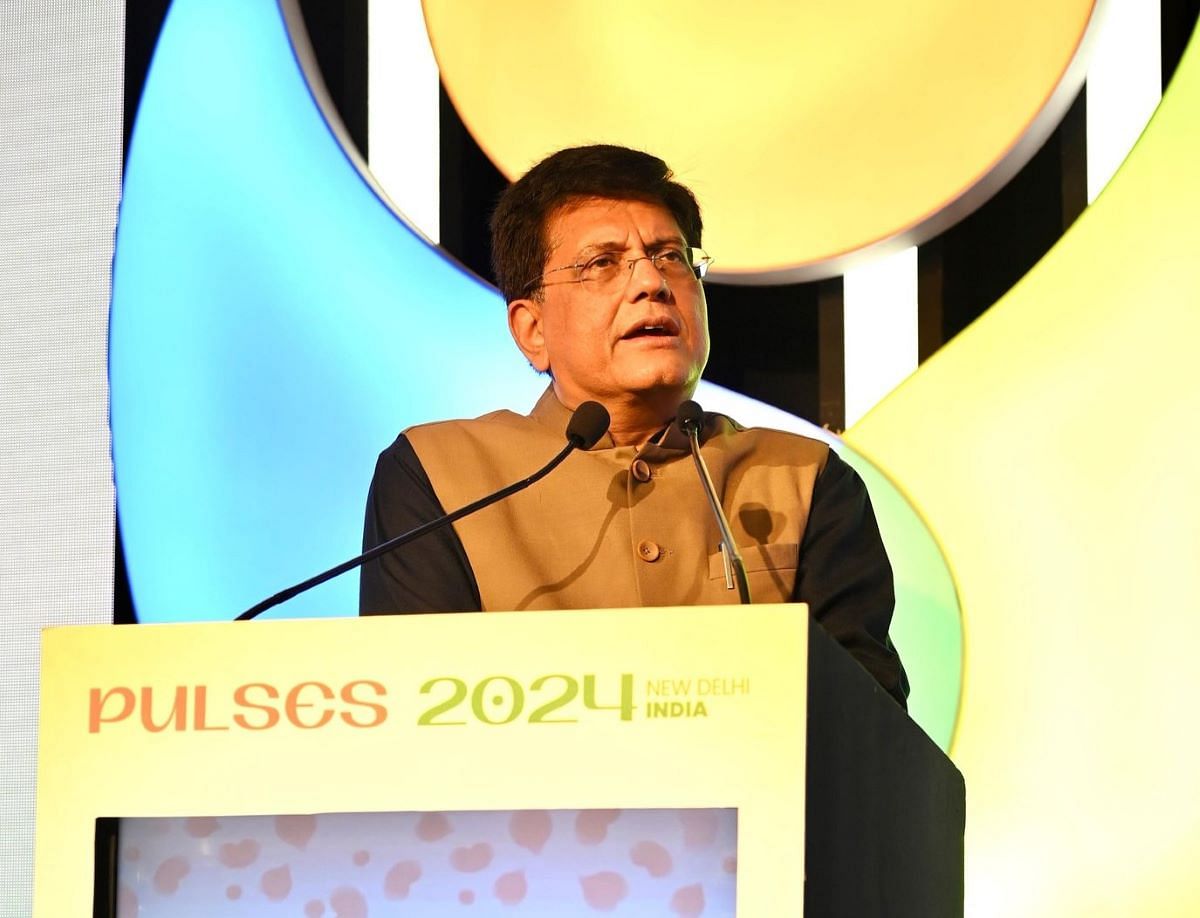
Union Minister of Consumer Affairs, Food and Public Distribution, Textiles, and Commerce & Industry, Piyush Goyal, commended Indian farmers for their significant role in making India self-sufficient and transforming the nation into a major exporter of agricultural products. Speaking at the NAFED: Pulse 2024 Convention, organized by the Global Pulse Confederation in collaboration with the National Agricultural Cooperative Marketing Federation of India (NAFED), Goyal expressed satisfaction at the rise in both production and quality of agriculture products.
Goyal highlighted that India has achieved the remarkable milestone of exporting over USD 50 billion worth of agricultural and related products, emphasizing the collective efforts of farmers in expanding production and enhancing the quality of food grains, pulses, lentils, vegetables, and fruits.
Pulses Production Records 60% Growth in a Decade
Acknowledging the commitment and capabilities of farmers, Goyal revealed that pulses production has surged by an impressive 60%, escalating from 171 lakh tonnes in 2014 to 270 lakh tonnes in 2024. The minister expressed optimism about the ongoing partnership between NAFED and the Global Pulse Confederation, envisioning a future where Indian pulses become a global dietary wonder.
Discussing the government's initiatives to support farmers, Goyal highlighted the success of Bharat Dal, launched under the leadership of Prime Minister Narendra Modi. The government-procured chana dal, retailed under the 'Bharat' brand, has rapidly captured a 25% market share within four months of its launch. Goyal attributed this success to the farmers' ability to produce high-quality pulses, emphasizing the potential for these affordable foods to benefit the common man.
Government Procurement Soars, Buffer Stock Ensures Stability
Goyal emphasized the government's increased procurement of pulses, which has surged by 18 times over the last decade. The introduction of buffer stock in 2015 has played a crucial role in ensuring moderate prices and price stability, shielding consumers from food inflation. India, as noted by Goyal, stands out with one of the lowest inflation rates, maintaining a 5-5.5% range over the last decade.
MSP's Significance in Supporting Farmers
Speaking on the Minimum Support Price (MSP), Goyal highlighted its role in providing farmers with a price 50% over the actual cost of production, ensuring an attractive return on investment. He noted substantial increases in MSP rates, reaching as high as 117% in Masoor, 90% in Moong, 75% more in chana dal, and 60% more in Toor and Urad over the past decade. NAFED and NCCF are actively encouraging farmers to diversify into pulses and lentils, offering assured prices for 5-year contracts for government procurement, marking a significant step for the Government of India.
Thoughts of Raghavan Sampathkumar, Executive Director, FSII
“We applaud the Government's firm commitment and initiatives to augment domestic pulses production, as emphasized by Union Ministers Piyush Goyal and Arjun Munda at the Pulses Convention 2024. All these are right steps in the direction of achieving Atmanirbharta in pulses in Amrit Kaal,” said Raghavan Sampathkumar, Executive Director, FSII, New Delhi.
“India, as the world's largest producer and consumer of pulses, faces significant challenges such as low yields, lack of processing, and organised marketing opportunities to name a few. To address these challenges, innovative technological interventions for crop improvement particularly, building climate resilience are crucial. For example, the introduction of Bt chickpea alone could potentially boost production significantly and reduce imports worth nearly Rs 7000 Crore. Furthermore, enhancing protein content in pulses is essential.”
“R&D on hybridization, genomics, and transgenic research in pulses require substantial investments. This can be possible by incentivising through tax deductions for R&D, public-private partnerships and supportive science-based policies,” he added.
Goyal concluded by highlighting India's position as the largest producer and 5th largest exporter of millets globally. He urged industry leaders to provide suggestions and guidance to further improve productivity and contribute to the growth of the pulse industry, echoing the government's similar focus on millets.
















